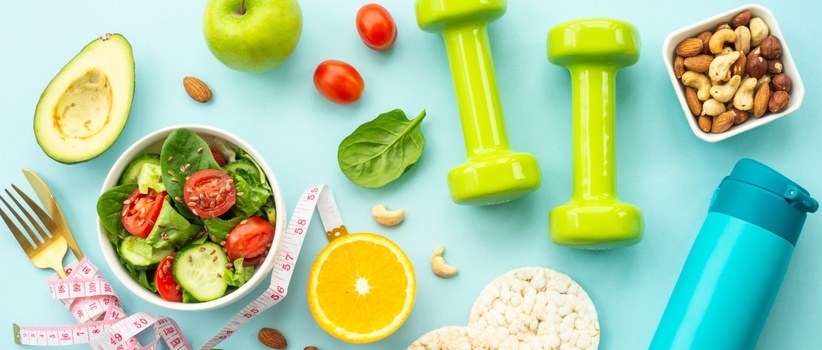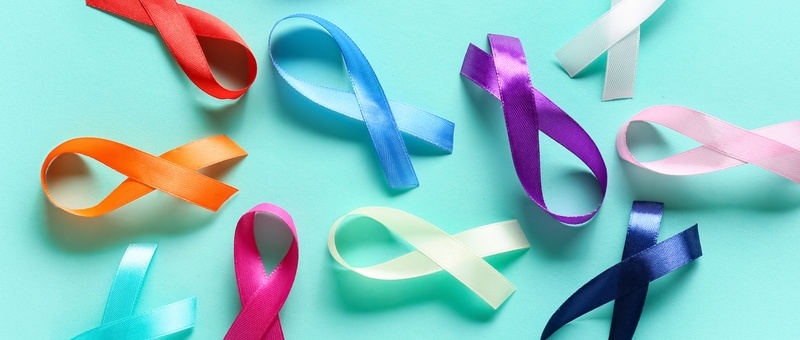
8 tips to help reduce your cancer risk at any age
Peer reviewed by Dr Colin Tidy, MRCGPLast updated by Lawrence HigginsLast updated 27 Aug 2025
Meets Patient’s editorial guidelines
- DownloadDownload
- Share
- Language
- Discussion
- Audio Version
Cancer in people under 50 has been increasing since the 1990s - and has risen by 79% over the last thirty years. Changes in diet and other lifestyle factors are playing a big part in this rise.
We explore the lifestyle habits thought to be most important in reducing your risk of cancer.
In this article:
Video picks for Information about cancer
"It's never been more important to actively take steps to reduce your cancer risk," says Heather Mackey, senior director of cancer prevention and early detection for the Prevent Cancer Foundation. "It is thought that up to 40% of cancers are linked to lifestyle factors that we can control."
Continue reading below
Cancer before your fifties
Developing cancer before you are 50 years of age is called early-onset cancer. While this currently only accounts for around 1 in 10 of all cancer cases, the rate at which early-onset cancer is increasing is raising the alarm among health professionals1.
Scientists still have a lot to learn about how and why cancer develops in some people and not others. However, it's becoming increasingly apparent that - for certain cancers at least - your lifestyle makes a big difference.
Cancer is the number one cause of death in high-income countries like the UK and US, and responsible for twice as many deaths as cardiovascular disease (CVD) - which we know to be closely linked to how we live,2,3.
Cancer prevention and your lifestyle choices
Back to contentsLifestyle choices do not exist in a bubble - they play an important role in health and disease in your body. By making healthy changes to these aspects of your life, you may be able to reduce your chances of developing cancer.
1. Avoiding obesity
Obesity is also on the rise in young adults, and this could also partly explain the increase in early-onset cancer cases. Between 2009 and 2020, the percentage of adults with obesity aged 20-44 years rose from around 33% to 41% in the US4.
Obesity is linked to at least 13 different types of cancer - throat (oesophageal), breast, ovarian, gallbladder, stomach, kidneys, liver, endometrial, pancreatic, thyroid, multiple myeloma, meningioma, and colorectal.
Obesity causes long-lasting inflammation and abnormal levels of substances like insulin and sex hormones. These problems can cause cancer to grow and spread.
Heather Mackey says: "Eating a healthy diet and getting at least 30 minutes of physical activity at least 5 days a week can make a big difference."
2. Supporting your gut
Your gut is home to millions of tiny microorganisms. The good bacteria benefit you while bad gut bacteria can cause damage and disease. Their balance - partly influenced by what you eat - is now thought to be connected to your cancer risk.
According to Mackey, this is an exciting area of research. There's a connection between your diet, the existence of a toxin called LPS that's produced by the bacteria in your gut, and a resultant immune system response that could lead to cancerous cells.
"As LPS causes inflammation, it can lead to increased cell growth and division, says Mackey. "Some research in cells show that, as well as creating tumours, it also promotes the spread of cancer - called metastasis."
"The full implications of the link between gut bacteria and cancer - and how it may be measured or treated - are not yet known," adds Mackey.
Still, there's mounting research for the general benefits of taking probiotic supplements, although it is recommended first and foremost to focus on the foods you eat. To promote a healthy gut, follow a healthy, balanced diet that includes probiotic foods, and limit ultra-processed junk foods.
3. Following an anti-inflammatory diet
Inflammation is a normal short-term response by the body to injury or infection. But long-term (chronic) inflammation, which can be caused by unhealthy lifestyle habits including your diet, can cause cell damage.
Following an anti-inflammatory diet is an overall healthy lifestyle diet that involves eating foods that fight long-lasting inflammation, while avoiding the ones that trigger it.
Mackey says:
Eat lots of:
Fruits and vegetables - all types.
Beans - all types but limit processed baked beans in sauce.
Unrefined whole grains - like brown rice and oats.
Lean proteins - like oily fish and chicken.
Limit your consumption of:
Red meat - like beef and pork.
Foods high in salt or sugar - like ultra-processed fast and fried foods.
Cut out or reduce from your diet:
Processed meats - like burgers and sausages
Drinks with added sugar - like fruit juices.
Alcohol - all types.
"It's best to avoid alcohol completely to reduce your risk of cancer. The more that you drink, the greater your cancer risk - even small amounts can lead to cancer."
4. Moving often and being active
Physical exercise is another important factor for preventing obesity, and therefore lowering your risk of cancer5:
Exercising a lot - holds the strongest evidence for reducing your risk of cancers of the bladder, breast, uterus, colon, throat, and stomach.
Spending a lot of time being still - known as sedentary behaviour, this contributes to colon, uterus, and lung cancers.
Physical inactivity, sedentary behaviour, and obesity can increase your risk of cancer partly due to their effect on inflammation, metabolic hormones, insulin sensitivity, and sex steroids in your body.
Mackey says: "Get at least 30 minutes of physical activity at least five days a week to make a big difference in your general health and wellbeing. Add exercise to your routine to reduce stress, increase energy, boost your immune system, control your weight and reduce your risk of cancer."
5. Managing your stress
It's usual to feel stressed every now and then, but it is not yet fully understood how prolonged stress can affect cancer risk in people. Currently, animal models have shown that there could be an increased risk but these have not been seen in human research studies.
The relationship may be an indirect one. For example, people having ongoing stress are more likely to develop unhealthy habits, such as drinking alcohol, smoking, and overeating. These are themselves risk factors for some cancers6.
6. Fighting infections
Infections, including viruses, bacteria, parasites, and fungi, are all linked to cancer. According to Mackey, vaccinations are one of the most effective ways to avoid preventable cancers caused by the following:
Hepatitis B and C (HBV and HCV)
Mackey says: "Hepatitis B and C are the leading causes of liver cancer. There are vaccinations against hep B, and testing and treatment are available for both hep B and C. The hepatitis B vaccine is recommended for all children and adults up to age 59, as well as adults age 60 and over who are at high risk for hepatitis B infection."
Human Papillomavirus (HPV)
Mackey says: "HPV been linked to cervical, anal, oropharyngeal, penile, vaginal, and vulvar cancers. These cancers are largely preventable with the HPV vaccination. All children should get the HPV vaccine between ages 9-12 and older teens and young adults aged 13-26 who have not been vaccinated can get a catch-up vaccination series."
Other ways to avoid infection
There are many infections that can't be prevented through vaccines. So how can you reduce your number of lifetime infections? It's not always possible to avoid them. In fact, many are a normal part of life for humans. But you can bolster your body's ability to overpower them.
Eat foods that support your immune system - foods rich in vitamin C, vitamin A, fermented foods, and antioxidant rich herbs like ginger and turmeric help to keep your immune system strong so it can fight infection.
Embrace good hygiene - different bacteria and viruses spread in different ways, but general tips include washing your hands frequently and ventilating areas you share with people who are ill.
Practise safer sex - can help you avoid sexually transmitted infections (STIs) like human immunodeficiency virus (HIV). "While HIV doesn't appear to directly cause cancer, it causes long-term inflammation and suppresses the immune system. In this way, it's associated with having a greater cancer risk, particularly for cancers like Non-Hodgkin's lymphoma and cervical cancer," says Mackey.
7. Protecting against sun exposure
Skin cancer cases have been steadily growing in the UK, and cases of life-threatening melanoma skin cancer are at an all-time high, with 17,500 cases reported in 20237.
Ultraviolet (UV) light from the sun can cause skin cancer, so the best way to stay safe when in the sun is to apply a high sun protection factor (SPF) cream - at least SPF 30, or SPF 50 if you're pale and freckled.
You should also protect yourself from the sun by:
Always avoid burning, and ideally tanning - this includes sun beds, which emit UV light.
Stay out of the sun in summer when it’s at its strongest. - between 11am and 3pm.
Cover up in the sun with a wide-brimmed hat.
Wear sun protection sunglasses - cancer can also develop in your eyes.
8. Quitting tobacco smoke
Cigarette smoke includes over 50 known substances that can cause cancer. The main threat is lung cancer, which kills around 30,000 people in the UK every year.
However, smoking is also linked to many other cancers, including cancer of the mouth, throat, nose, larynx, gullet, pancreas, bladder, cervical, kidney, and leukaemia.
Smoking is addictive and not easy to quit - but it is possible. There’s helpful advice and support channels to help, as well as medicines your doctor may recommend to increase your chance of giving up.
"It's never too late to quit," says Mackey. "If you need help, talk to your pharmacist or doctor."
Continue reading below
Further reading
Back to contentsPatient picks for Information about cancer

Cancer
Your essential skin cancer checklist
Skin cancer can kill you, so it's essential to know the signs and get any suspicious skin changes checked out quickly. Here we show what to look for and what to do to try and prevent it happening.
by Victoria Raw

Cancer
Cancer symptoms you should never ignore
When it comes to unexplained medical symptoms, it's easy to bury your head in the sand and ignore them, especially if they're a bit embarrassing to discuss. But getting them checked out by a doctor could end up saving your life. Here are the cancer symptoms you should never ignore.
by Lynn Stephen
Continue reading below
Article history
The information on this page is peer reviewed by qualified clinicians.
Next review due: 27 Aug 2028
27 Aug 2025 | Latest version
21 May 2024 | Originally published
Authored by:
Amberley Davis

Ask, share, connect.
Browse discussions, ask questions, and share experiences across hundreds of health topics.

Feeling unwell?
Assess your symptoms online for free
Sign up to the Patient newsletter
Your weekly dose of clear, trustworthy health advice - written to help you feel informed, confident and in control.
By subscribing you accept our Privacy Policy. You can unsubscribe at any time. We never sell your data.